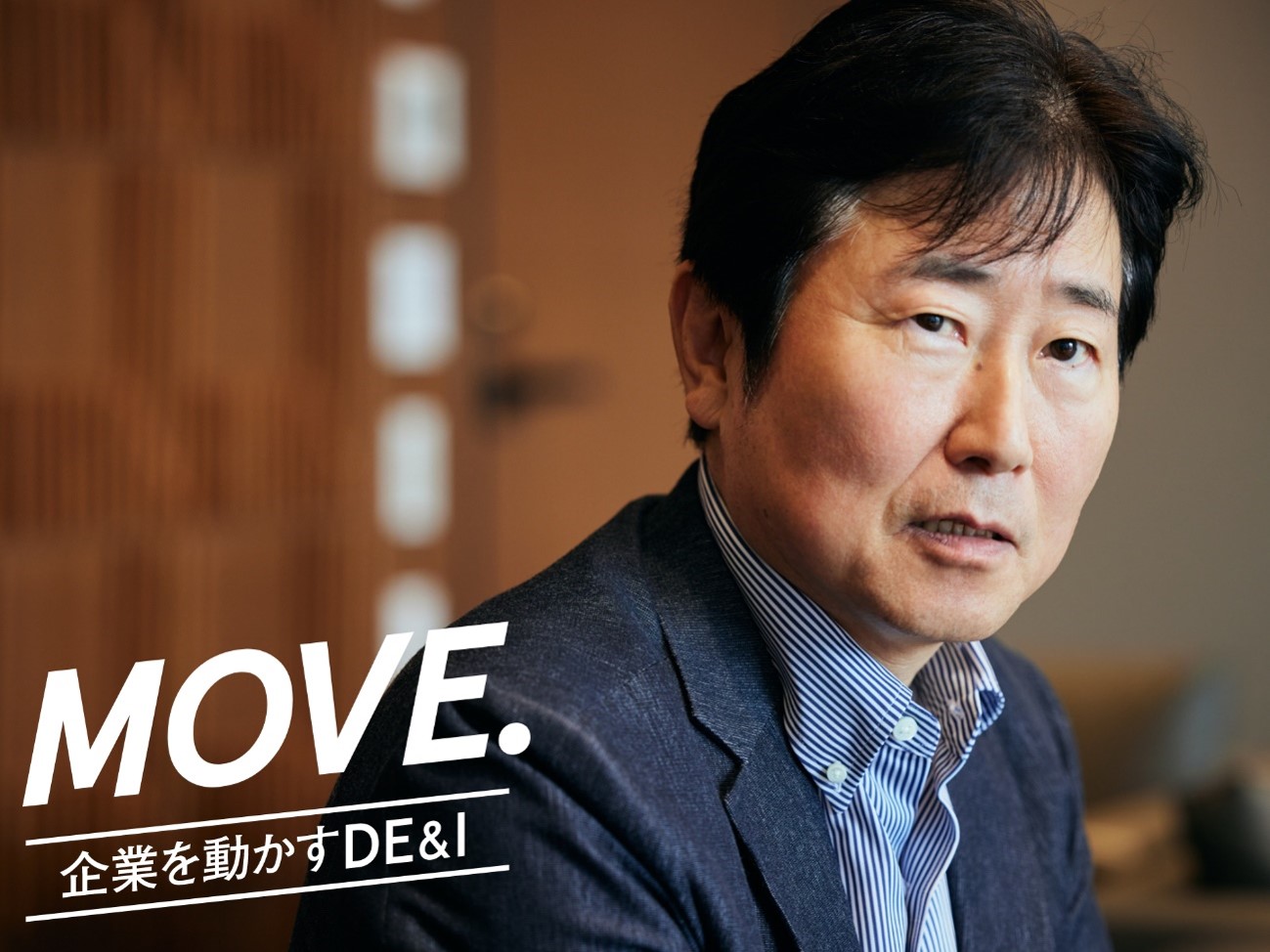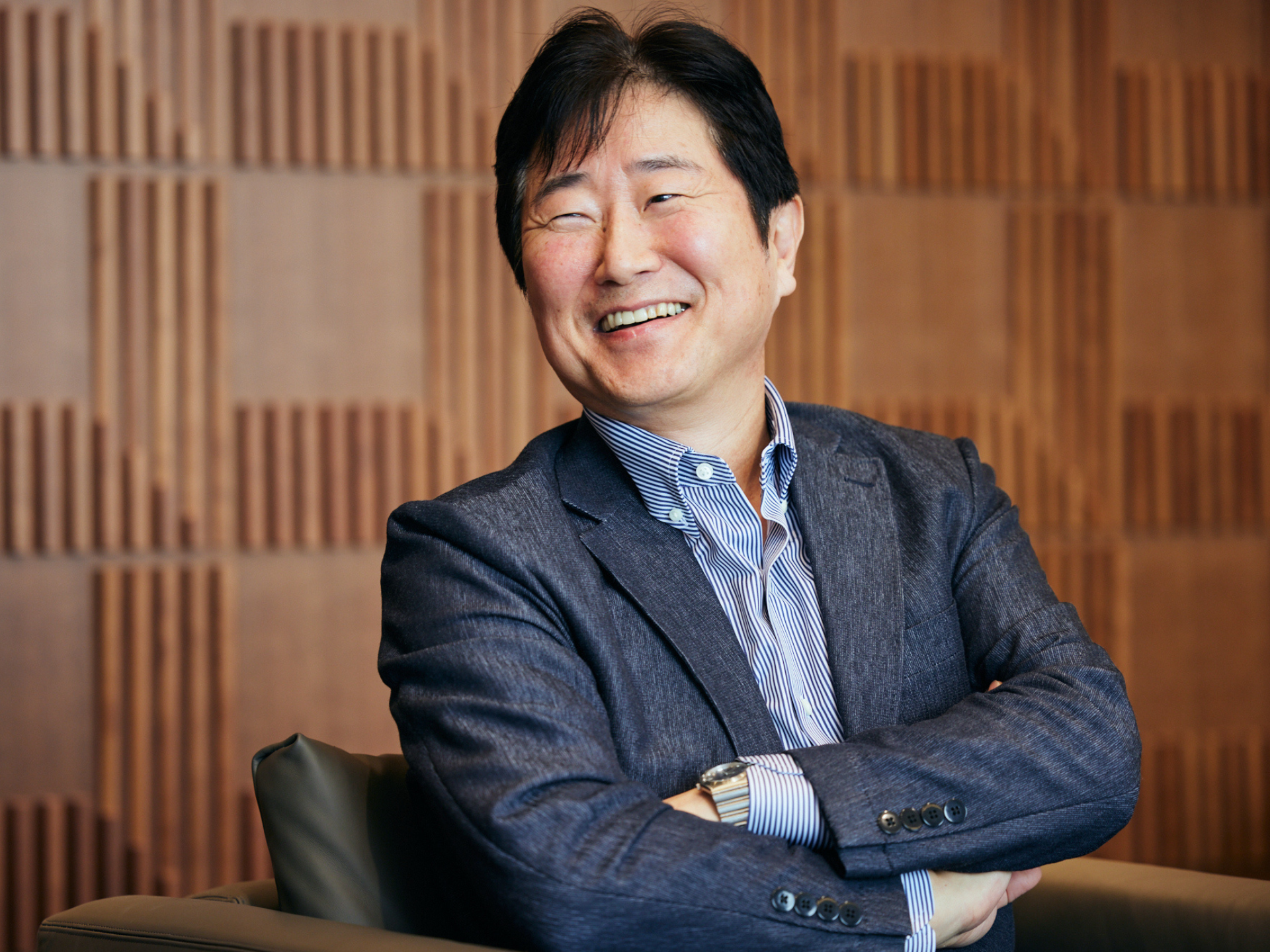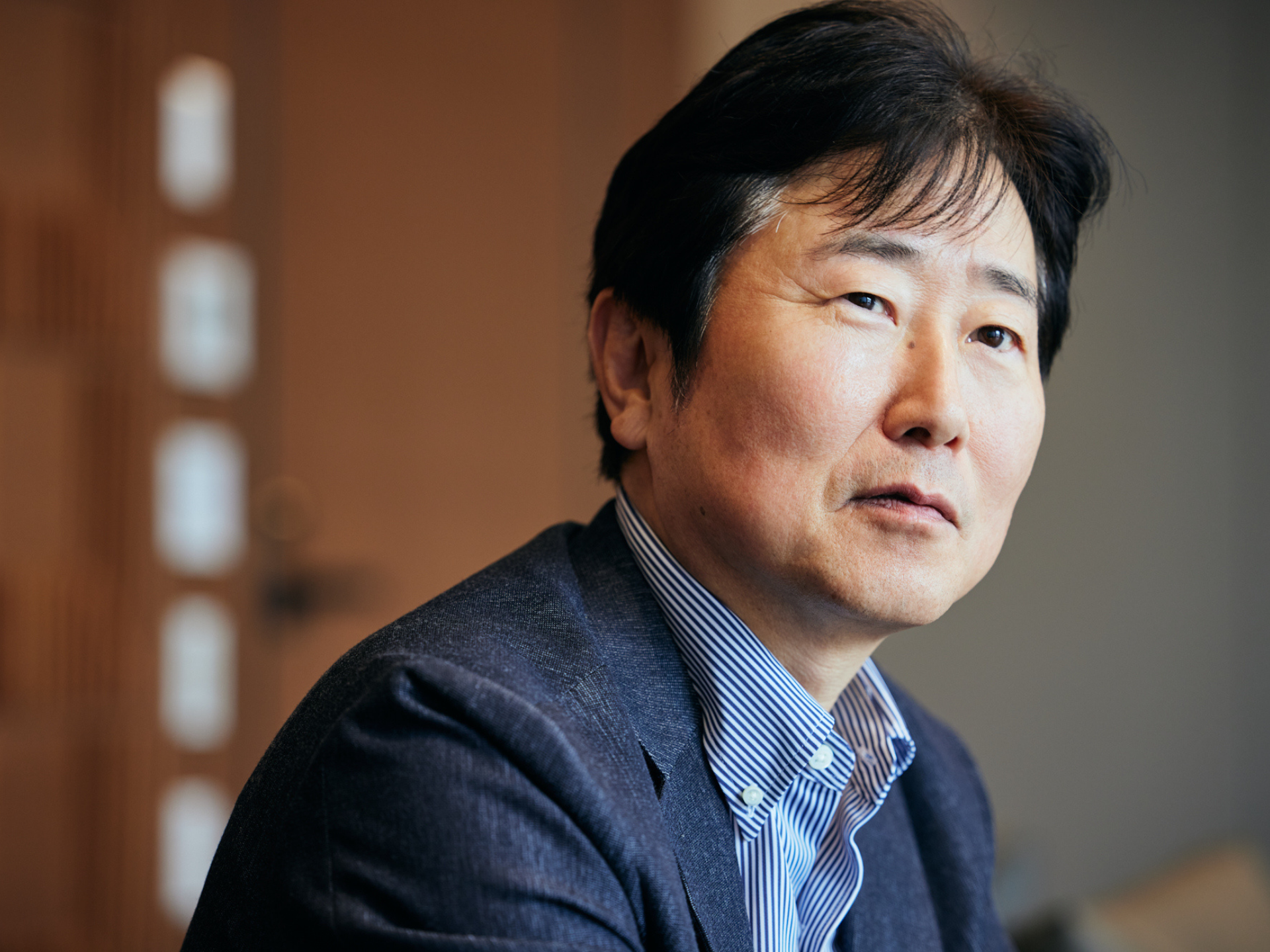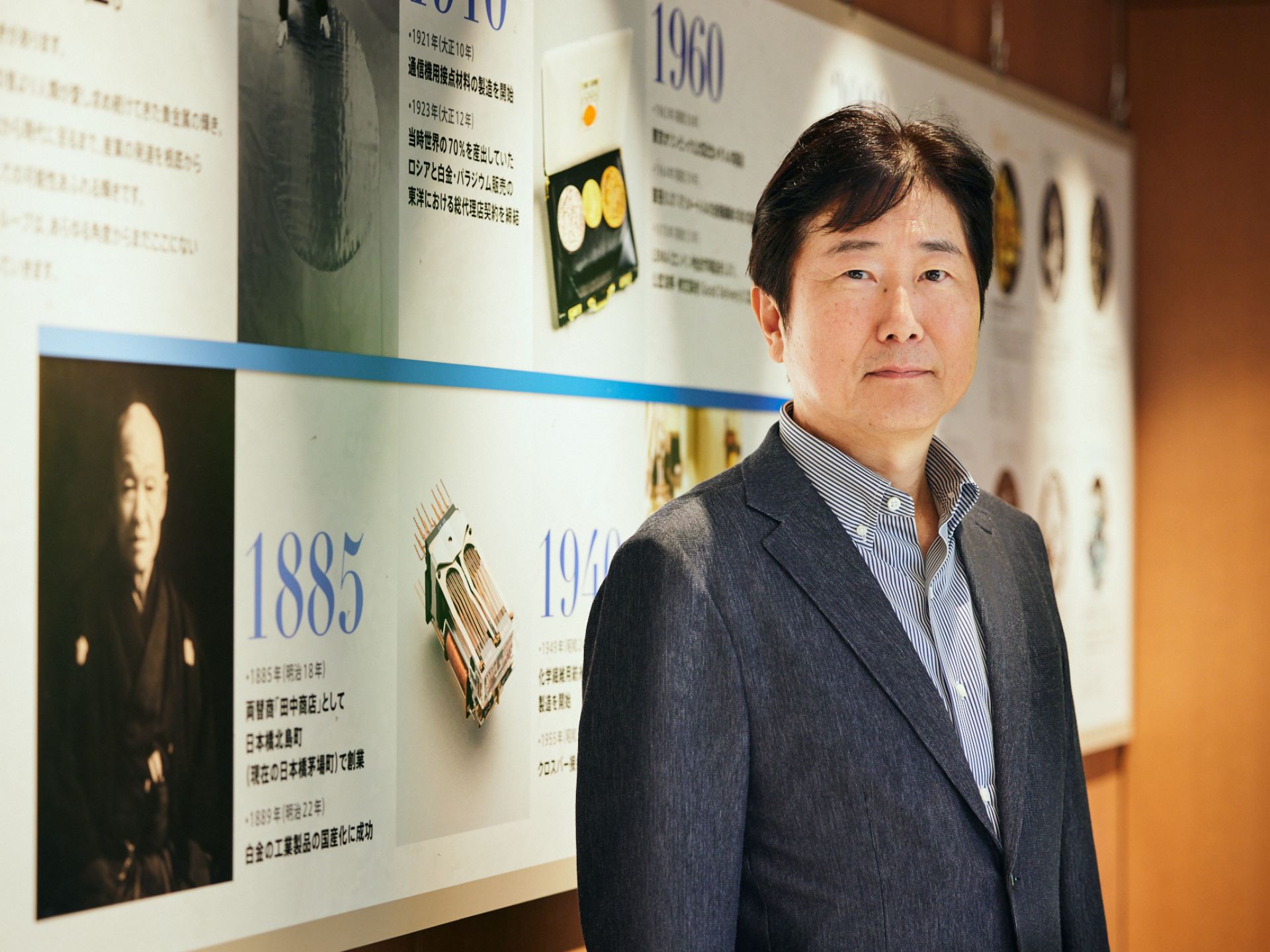CLOSE
About Elements
TANAKA is a leading company in the field of precious metals.
Advanced materials and solutions that support societal progress, the development stories behind them, the voices of engineers, and our management philosophy and vision—
Elements is an online media platform that shares insights that lead to a better society and a more prosperous future for the planet under the slogan “Mastering Precious Metals.”

Continued Dialogue Makes Diversity More Visible: Satoshi Ichiishi, Group COO, TANAKA Holdings Co., Ltd.

Photography by Ari Takagi
July 25, 2024 MOVE. DEI Driving Companies (MASHING UP)
Founded in 1885, the TANAKA PRECIOUS METAL GROUP has been a leader in the precious metals industry. Spearheading the Group’s global expansion is Satoshi Ichiishi, who serves as Group COO.
The Group operates across a wide range of fields, from the development and provision of precious metal materials used in semiconductors and next-generation energy to precious metal recycling.
With its strong technological capabilities and recycling capacity as key strengths, the TANAKA PRECIOUS METAL GROUP aims for growth in the global market.
aims for growth in the global market.
“Embracing diversity and turning it into a strength”—Ichiishi’s words, with an eye on the future, reveal the path Japanese companies should follow.
From Engineer to Executive: An Urgent Need for Globalization

Satoshi Ichiishi, Group COO of TANAKA Holdings Co., Ltd., joined TANAKA PRECIOUS METAL TECHNOLOGIES CO., LTD. in 1985. After serving as Ichikawa Plant Manager, Shonan Plant Manager, General Manager of the Chemical & Refining Department, and a Director, he became Managing Director in 2012 and Senior Managing Director in 2014. In 2018, he was appointed as a Director at Metalor Technologies International SA (based in Switzerland; current position). In June 2020, he became Group COO and Group CBO at TANAKA Holdings Co., Ltd. In March 2022, he was appointed as a Director at LT Metal Co., Ltd. (current position). In January 2024, he became Group COO of both TANAKA Holdings Co., Ltd. and TANAKA PRECIOUS METAL TECHNOLOGIES CO., LTD. (current position). Photograph by Ari Takagi.
Q: Please tell us about your career up to this point.
Satoshi Ichiishi (hereafter Ichiishi): After joining the company at 22, I was assigned to work in manufacturing technology at the Ichikawa Plant in Chiba Prefecture, where I was involved in developing recovery and refining processes for precious metal recycling as a chemical engineer. Being able to handle everything from basic research to industrialization was an incredibly valuable experience. I honed my skills in this field for 10 years.
Afterwards, I moved from factory management to quality and analysis management, serving as Ichikawa Plant Manager, Shonan Plant Manager, and General Manager of Chemical & Refining Business Division. In 2018, I spent two years in Switzerland as a director of Metalor Technologies International SA (hereafter, Metalor), a precious metals refining, product manufacturing, and sales company that became a wholly-owned subsidiary in 2016. This experience greatly informs my current efforts to promote global management.
Q: You were appointed Group COO in January 2024, but you also serve as both Group CBO and Group CIBO, correct?
Ichiishi: I currently have three main roles. The first is to determine the guidelines and direction for the product development that will shape our company’s future. The second is to promote global management and advance the integration of Metalor and the TANAKA PRECIOUS METAL GROUP. And the third is to coordinate the activities of various departments related to our current industrial business.
I have the urgent sense that if we don’t promote globalization, the TANAKA PRECIOUS METAL GROUP will fall into decline in the future. The reason lies in our business structure, which originally had factories in Japan and exported to Asia. Going forward, we need to build a system that carries out production closer to the market, or else we won’t be able to survive global competition.
Particularly for companies like ours that deal with precious metal-based products, recycling occupies an extremely important position in our business strategy. The current challenge is to minimize the lead time from product manufacturing to recycling—that is, the retention time for precious metals. To achieve this, it’s essential that we integrate production sites with recycling plants, producing materials close to customers while simultaneously collecting and recycling scrap. I believe that building and accelerating this cycle on a global scale is vital for staying competitive into the future.
The Shonan Plant Days: Being Made Aware of Staff Feedback and Communicating More Effectively
Q: As someone who started as an engineer, what kind of mindset change was necessary as you became involved in management?
Ichiishi: I personally didn’t feel much of a gap in that transition. This might be because I always kept a business perspective in mind throughout the technology development process. I would meet customers, collaborate with the sales department, gain a direct understanding of customer needs, technology trends, and business developments, and reflect these in our development. This experience was very beneficial for management as well.
Regarding people management, I needed to adapt my approach as the environment changed. During my time at the Ichikawa Plant, my first management experience, everyone knew each other, and looking back, there wasn’t much diversity in the environment. There was a sense that we could understand each other intuitively and that even if I used somewhat strong language, it would be understood.
However, when I transferred to the Shonan Plant, I was told, “Mr. Ichiishi, your words are harsh.” I realized that the leadership style I had used in the highly homogeneous environment wouldn’t work at all. The higher your position, the more directly your strong language is received, so I had to start from a much milder approach. I learned that I needed to understand how others perceive me and interact in a way that makes both parties feel safe.
Specifically, I do my best to communicate effectively and avoid misunderstandings by proceeding in this order: state the purpose, explain the background situation, and then make the request. I still mess up quite often, though.
Even now, I often reflect on small comments I’ve made when I get home and think about how to phrase things differently next time. It’s a continuous process of trial and error.
Efforts to Promote DE&I to Change the Organizational Culture

Photograph by Ari Takagi.
Q: You mentioned that you spent two years in Switzerland as a director at Metalor. Were there any differences in organizational culture?
Ichiishi: What surprised me when I arrived was how completely different the concept of work-life balance is compared to Japan. The productivity of white-collar workers seemed more than twice as high as ours. While they value their private time greatly, they also complete their work efficiently in about 7 hours. It’s an environment where if you don’t do this, you’ll be dismissed.
They increase efficiency through continuous efforts, utilization of IT systems, and by identifying and standardizing tasks that don’t require human involvement. Their decision-making is also rational and quick. They believe that in business, it’s more advantageous to make decisions quickly even if there are some mistakes.
In Japan, in an attempt to minimize mistakes, we tend to fall into excessive consensus-building and perfectionism. For example, when making decisions about capital investment, there’s a tendency to focus too much on the details, and the time required for this process can lead to missed business opportunities. This sense of speed is extremely important, especially for functions handled by headquarters.
That being said, it’s often thought that introducing democracy and diversity slows down decision-making. However, based on my experience in Switzerland, I felt that this isn’t necessarily the case. They also go through a democratic process, but once the top management makes a decision, everyone follows it. This trend can be seen in American companies as well.
In Japan’s case, individual opinions sometimes continue to be expressed even after a decision has been made, which tends to slow things down. While there are times where Japan’s approach is superior in terms of individual optimization, I feel that overall, there’s a higher possibility of business loss.
Q: What direction do you think is desirable for the organization’s decision-making process in the future?
Ichiishi: To strengthen the organization, I believe it’s best to cultivate a culture that emphasizes quick decision-making and promptly following the direction that is decided upon. However, as a prerequisite, it’s essential to create an environment where a diverse array of opinions can be freely expressed. It’s the responsibility of top management to foster this kind of an environment.
What’s even more important is ensuring that there is diversity in these exchanges of viewpoints. Currently, our executive meetings and Group management committees are composed almost entirely of men. While we have women participating as outside directors on the board of directors, the organizational structure is basically male-centered. While it’s difficult to dramatically change this situation in the short term, we recognize the need for gradual reform.
The More Dialogue We Have, the More We Realize There’s Still Much We Don’t Understand

Photography by Ari Takagi
Q: What specific initiatives are you taking towards transforming the organization?
Ichiishi: What I consider particularly important is providing young female employees with more opportunities to participate in executive meetings. Currently, male employees dominate these meetings, and female employees have limited opportunities to experience the decision-making process at the management level. I believe improving this situation will lead to the long-term promotion of women’s active participation in the workplace.
Regarding childcare, we’re strengthening initiatives to promote men’s participation in childcare. If someone tells me, “I’m going to take a month of childcare leave,” I might say, “Isn’t that a bit short?” However, some female employees prefer to prioritize a family life centered on their children and want their husbands to focus on work, so it’s important to carefully listen to each individual’s wishes and thoughts about work-life balance.
We’re also advancing reforms in the company’s systems. Previously, it was difficult to take same-day paid leave, and there were restrictions on the compensatory leave system, making it hard for employees with children to take leave on short notice. To improve this, we changed the system starting in 2024 to allow for more flexible paid leave.
We’re strengthening communication with our employees as well. In addition to town hall meetings led by the president, I have personally been conducting regular one-on-ones with managers and leaders in the Industrial Business Division I oversee since 2020. Moreover, for about a year now, I’ve been increasing opportunities for dialogue with general employees.
Q: Why did you decide to increase dialogue with general employees?
Ichiishi: The specific impetus for this was an employee survey conducted in 2023. It revealed various opinions we weren’t aware of, including harsh feedback for management and points of contention. This caused a shared sense of urgency among the management team in that we realized we could not conduct appropriate management without knowing more about the actual situation on the ground.
Our approach to transfers is another example. Until now, our transfers were somewhat like a one-way ticket, which led to cases where employees would be stationed at an overseas location for over 10 years without being informed of future plans. Such long-term, indefinite transfers make it difficult for employees to plan their lives.
Metalor has the practice of setting a predetermined period and drawing up a contract when transferring or assigning employees overseas. I’m considering introducing such a system in Japan as well, with a target of about three to five years.
Our goal is to create an environment in which each employee can take ownership of their career and proactively design their life, regardless of gender. As we expand recruitment of national staff overseas in the future, it’s crucial to create systems that work globally. I believe accelerating these initiatives will also help us to stay competitive as a global company.
What’s Important in Dialogue with Employees

Photography by Ari Takagi
Q: You’ve taken the MASHING UP LEARN course through the DEI education app provided by MASHING UP.
course through the DEI education app provided by MASHING UP.
Ichiishi: It was a good opportunity to learn about diversity in a comprehensive manner. Personally, as I’m the type who likes to focus all at once, I studied for an hour at a time instead of the recommended five minutes a day. I found the quiz-like game approach interesting and easy to learn from. On the other hand, there were moments when I felt a gap between the program’s answers and my own views. This might be a challenge unique to programs dealing with diversity.
Taking the MASHING UP LEARN course allowed me to objectively reflect on the current state of DE&I promotion at our company. For example, in dealing with female employees who are raising children, I once asked a woman who had applied for a business trip if she would be alright going, thinking I was being considerate, but I realized that sometimes such consideration itself might not be desired. If we separate people into categories such as “women raising children,” we might overlook the fact that each individual has a different balance between work and childcare. We need to pay attention to details and avoid making judgments based on preconceptions, and we must make treating people as individuals part of the company culture.
Q: Lastly, please tell us what you want to work on first and what you want to value going forward.
Ichiishi: That would be dialogue with employees. Understanding the thoughts and circumstances of individual employees through dialogue and reflecting this in the company’s management policies and measures should contribute to future growth.
The biggest realization I’ve gained through continued dialogue is that we still don’t fully understand the thoughts of our employees and the actual situation at our company. While this is a personal challenge of mine, it’s also an important issue that we members of management need to address.
When engaging in dialogue, it’s crucial not to interrupt or steer the conversation. And I’m also mindful not to disclose individual circumstances so that those who have spoken to me don’t end up at a disadvantage. Up until now, I’ve often been told that my words are harsh, but I think I’ve gradually gotten better at creating an atmosphere where employees can speak freely.
Looking ahead to our 2030 milestone, which is the ultimate goal of this dialogue, we aim to have diverse leaders in each group.
Source: MASHING UP
![]()







